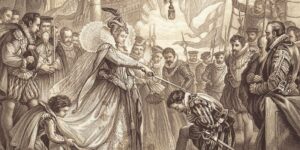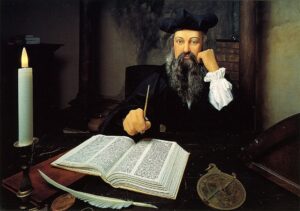-
January
-
February
- This Week in History: February 6-12 – Lesson
- This Week in History: February 6-12 – Quiz
- This Week in History: February 13-19 – Lesson
- This Week in History: February 13-19 – Quiz
- This Week in History: February 20-26 – Lesson
- This Week in History: February 20-26 – Quiz
- This Week in History: February 27-March 5 – Lesson
- This Week in History: February 27-March 5 – Quiz
-
March
- This Week in History: March 6-12 – Lesson
- This Week in History: March 6-12 – Quiz
- This Week in History: March 13-19 – Lesson
- This Week in History: March 13-19 – Quiz
- This Week in History: March 20-26 – Lesson
- This Week in History: March 20-26 – Quiz
- This Week in History: March 27-April 2 – Lesson
- This Week in History: March 27-April 2 – Quiz
-
April
- This Week in History April 3-9 – Lesson
- This Week in History April 3-9 – Quiz
- This Week in History: April 10-16 – Lesson
- This Week in History: April 10-16 – Quiz
- This Week in History: April 17-23 – Lesson
- This Week in History: April 17-23 – Quiz
- This Week in History: April 24-30 – Lesson
- This Week in History: April 24-30 – Quiz
-
May
- This Week in History: May 1 – 7 – Lesson
- This Week in History: May 1 – 7 – Quiz
- This Week in History: May 8 – 14 – Lesson
- This Week in History: May 8 – 14 – Quiz
- This Week in History: May 15 – 21 – Lesson
- This Week in History: May 15 – 21 – Quiz
- This Week in History: May 22-28 – Lesson
- This Week in History: May 22-28 – Quiz
- This Week in History: May 29-June 4 – Lesson
- This Week in History: May 29-June 4 – Quiz
-
June
- This Week in History: June 5 – 11 – Lesson
- This Week in History: June 5 – 11 – Quiz
- This Week in History: June 12-18 – Lesson
- This Week in History: June 12-18 – Quiz
- This Week in History: June 19-25 – Lesson
- This Week in History: June 19-25 – Quiz
- This Week in History: June 26 – July 2 – Lesson
- This Week in History: June 26 – July 2 – Quiz
-
July
- This Week in History: July 3 – 9 – Lesson
- This Week in History: July 3 – 9 – Quiz
- This Week in History: July 10 – 16 – Lesson
- This Week in History: July 10 – 16 – Quiz
- This Week in History July 17 – 23 – Lesson
- This Week in History July 17 – 23 – Quiz
- This Week in History – July 24-30 – Lesson
- This Week in History – July 24-30 – Quiz
- This Week in History: July 31 – August 6 – Lesson
- This Week in History: July 31 – August 6 – Quiz
-
August
- This Week in History: August 7-13 – Lesson
- This Week in History: August 7-13 – Quiz
- This Week in History: August 14 – 20 – Lesson
- This Week in History: August 14 – 20 – Quiz
- This Week in History: August 21 – 27 – Lesson
- This Week in History: August 21 – 27 – Quiz
- This Week in History: August 28 – September 3 – Lesson
- This Week in History: August 28 – September 3 – Quiz
-
September
- This Week in History: September 4 – 10 – Lesson
- This Week in History: September 4 – 10 – Quiz
- This Week in History: September 11 -17 – Lesson
- This Week in History: September 11 -17 – Quiz
- This Week in History: September 18 – 24 – Lesson
- This Week in History: September 18 – 24 – Quiz
- This Week in History: September 25 – October 1 – Lesson
- This Week in History: September 25 – October 1 – Quiz
-
October
- This Week in History: October 2-8 – Lesson
- This Week in History: October 2-8 – Quiz
- This Week in History: October 9 –15 – Lesson
- This Week in History: October 9 –15 – Quiz
- This Week in History: October 16–22 – Lesson
- This Week in History: October 16–22 – Quiz
- This Week in History: October 23–29 – Lesson
- This Week in History: October 23 –29 – Quiz
- This Week in History: October 30 – November 5 – Lesson
- This Week in History: October 30 – November 5 – Quiz
-
November
- This Week in History: November 6 – 12 – Lesson
- This Week in History: November 6 – 12 – Quiz
- This Week in History: November 13 – 19 – Lesson
- This Week in History: November 13 – 19 – Quiz
- This Week in History: November 20 – 26 – Lesson
- This Week in History: November 20 – 26 – Quiz
- This Week in History: November 27- December 3 – Lesson
- This Week in History: November 27- December 3 – Quiz
-
December
This Week in History: December 11 – 17- Lesson
Sir Francis Drake Started His Trip Around the World.
“Certain periods in history suddenly lift humanity to an observation point where a clear light falls upon a world previously dark.” ~ Anne Sullivan
December 13, 1577: Sir Francis Drake Started His Trip Around the World

Sir Francis Drake (Getty Images)
Francis Drake was the son of a tenant farmer but later became the first Englishman to circumnavigate the globe. He was knighted by the Queen of England, earning his title “Sir” before his name. He took to the seas at the age of 18 as a privateer, or sometimes called a pirate. He, along with his cousin John Hawkins, sailed to Africa for the slave trade, but Drake gave that up to plunder Spanish ports in the Caribbean, under the commission given to him by Queen Elizabeth I.
In 1577, he led an expedition through the Straits of Magellan and then continued exploring, reportedly traveling as far as Vancouver, Canada and the area near San Francisco, California. He laid claim to the area around California in the queen’s name and called it New Albion.
On December 13, 1577, he left to begin his trip around the world. It took several months, but when he returned, Queen Elizabeth herself knighted him while aboard his ship, the Golden Hind. Sir Francis Drake died off the coast of Panama of fever and dysentery when he was 55 years old. He was buried at sea in a lead-lined coffin and wearing full armor. To this day, treasure hunters continue to search for his watery burial site.
Other Notable History Mentions
December 11, 1901: Guglielmo Marconi made the first transatlantic radio signal. It went from Cornwall, England to St. John’s, Newfoundland.
December 11, 1936: King Edward VII abdicated his English throne to marry “the woman I love,” Wallis Warfield Simpson, an American.
December 11, 1941: Italy and Germany declared war on the US during World War II. President Franklin D. Roosevelt made defeating Adolf Hitler his biggest priority.
December 11, 1994: Russia ended Chechnya’s rebel drive for independence that had been going on for three years.
December 11, 1998: The House Judiciary Committee voted and approved three articles of impeachment, which charged President Bill Clinton with obstruction of justice and perjury.
December 12, 1870: From Georgetown, South Carolina, Joseph Hayne Rainey became the first black person to serve in the House of Representatives.
December 12, 1998: A fourth article of impeachment was approved by the House Judiciary Committee against President Clinton. This one accused the president of making false statements to Congress.
 December 13, 1545: Summoned by Pope Paul III, the Council of Trent met to discuss the rise of Protestantism.
December 13, 1545: Summoned by Pope Paul III, the Council of Trent met to discuss the rise of Protestantism.
December 13, 1642: Abel Tasman of the Dutch East India Company discovered New Zealand.
December 13, 1991: The Korean War officially ended after North and South Korea signed a treaty of nonaggression and reconciliation, even though the fighting had actually stopped in 1953.
December 14, 1799: President George Washington died at Mount Vernon.
December 14, 1911: Roald Amundsen, a Norwegian explorer, was the first person to reach the South Pole.
December 14, 1918: British women, for the first time, were allowed to vote in general election and run for office.
December 14, 1962: For the first time, information was received from another planet after the Mariner II space probe visited the planet Venus and sent back data.
December 15, 1791: The Bill of Rights, the first ten amendments to the Constitution, became effective.
December 15, 1890: Sitting Bull, a Sioux leader, was killed in a battle with US soldiers in South Dakota.
December 15, 1939: The movie Gone with the Wind premiered in Atlanta.
December 15, 1964: Canada adopted a new flag that features a red maple leaf on a white background.
December 15, 1995: European Union leaders introduced their new currency, the euro.
December 16, 1653: Oliver Cromwell was declared Lord Protector of England after defeating King Charles I in England’s Civil War.
December 16, 1773: As part of the events leading up to the American Revolution, the Boston Tea Party happened.
December 16, 1969: The British House of Commons voted to end the death penalty in England.
December 17, 1903: Orville and Wilbur Wright conducted the first powered, controlled airplane flights.
Famous Birthdays
John Jay (December 12, 1745) was born in New York City. An early American statesman, he co-wrote the Federalist Papers with Alexander Hamilton and James Madison.
William Lloyd Garrison (December 12, 1805) was born in Newburyport, Massachusetts. An abolitionist, he traveled the country giving speeches against slavery. He also advocated for the North to secede from the South.

Nostradamus (Photo by Rainer Binder/ullstein bild via Getty Images)
Gustave Flaubert (December 12, 1821) was born in Rouen. A French author, his best-known novel is about a woman who revolted against the middle class society; Madame Bovary.
Henrich Heine (December 13, 1797) was born in Dusseldorf. A German writer, he said, “Where books are burned, human beings are destined to be burned too.” This was 100 years before the Nazis started burning books in Germany.
Mary Todd (December 13, 1818) was born in Lexington, Kentucky. She was the wife of President Abraham Lincoln.
Phillip Brooks (December 13, 1835) was born in Boston, Massachusetts. He wrote the lyrics for the Christmas carol O Little Town of Bethlehem.
Nostradamus (December 14, 1503) was born as Michel de Nostredame in St. Remy, Provence, France. He wrote astrological predictions that many believe tell the future.
James Doolittle (December 14, 1896) was born in Alameda, California. He was a famous WWII general awarded the Medal of Honor after leading his troops during the Normandy invasion.
Alexandre Eiffel (December 15, 1832) was born in Dijon, France. He designed the Eiffel Tower in Paris and helped design the Statue of Liberty.
Ludwig van Beethoven (December 16, 1770) was born in Bonn, Germany. Although deaf, he is considered one of the greatest orchestral composers who ever lived.
Jane Austen (December 16, 1775) was born in Hampshire, England. A novelist, she wrote romance-inspired books such as Pride and Prejudice, Emma, and Sense and Sensibility.
George Santayana (December 16, 1863) was born in Madrid, Spain. He immigrated to the US and became a teacher at Harvard University. He is known for saying, “Those who cannot remember the past are condemned to repeat it.”
Deborah Sampson (December 17, 1760) was born in Plympton, Massachusetts. During the Revolutionary War, she disguised herself as a man so that she could enlist in the Continental Army. She went by the name of Robert Shurtleff. She was dismissed in 1783 after she became seriously ill and her gender was discovered.